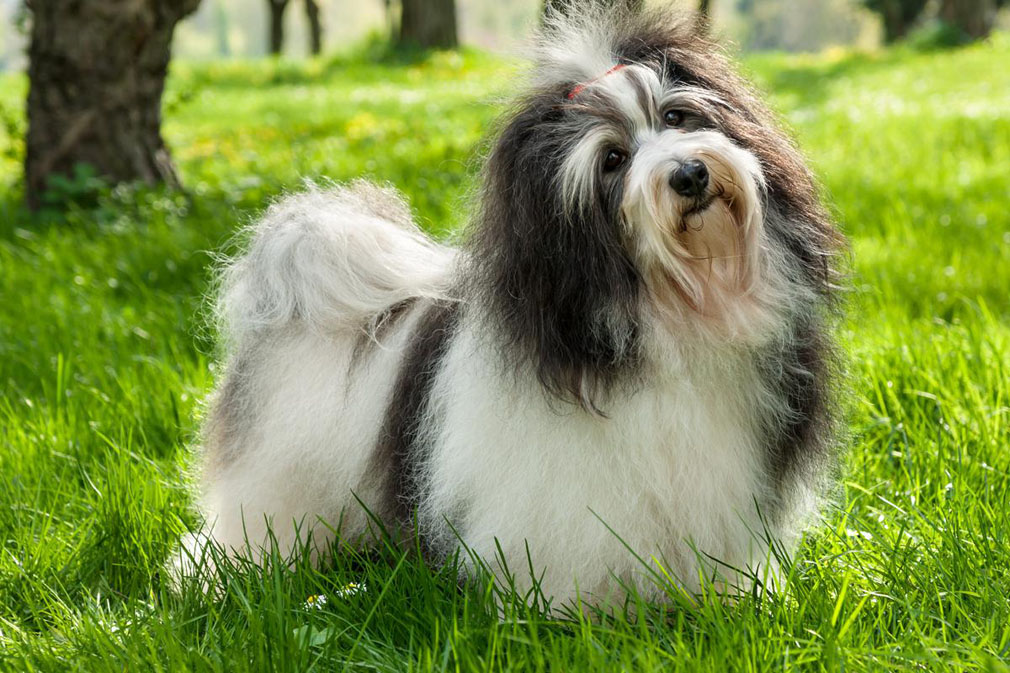Havanese


 Puppy
Puppy
 Fully Grown
Fully Grown
Small and fluffy but very lively, Havanese like to burn energy through rumbling at the park or taking long walks. They won't say no to agility or other dog sports as they are natural performers and will learn new tricks and obedience skills in no time.
Havanese bring lots of love and affection with them, but like to decide for themselves when to give it. They can be mildly stubborn and manipulative and require a consistent handler - otherwise you run the risk of them training you instead of you training them!
They like to be loved and looked after, but not mollycoddled. They often get confused with Maltese, who are similar in looks but opposite in personality. Havanese are more independent and wilful.
They tend to be great apartment dogs due to their size and they hardly bark if exercised adequately. It is recommended to brush them regularly to avoid matting of their coat.
| Weight: | 3.5-6 kg |
| Health risk: | Medium |
| Life expectancy: | 12-15 years |
| Coat: | Long |
| Grooming intensity: | High |
| Monthly cost (food): | Low |
| Trainability: | High |
| Activity level: | High |
There are many sources to get your Havanese from. Considering the number of homeless dogs without a future, we strongly encourage you to consider rescuing a dog. Your local shelter or rescue organisation can be a helpful place to start, or try contacting your local or national breed club or a reputable breeder and asking if they have pets available for rehoming. Many rescue organisations have active Facebook pages, which can also be a good place to enquire.
Here are some links that could be useful for finding a Havanese to adopt:
To help your rescued Havanese to settle into your home, our Rescue Dog Guide gives you tips and advice on bringing your rescue dog home.
If you decide you’d prefer to get your Havanese from a breeder, the following guides will help you to find a responsible breeder:
The following organisations will be able to help you find breeders in your state in Australia. They will also be able to connect you with your local breed clubs, which are always a great source of information in regards to finding good breeders and rescue organisations.